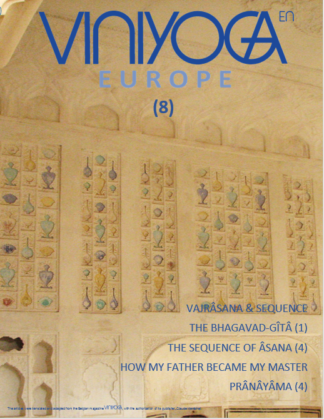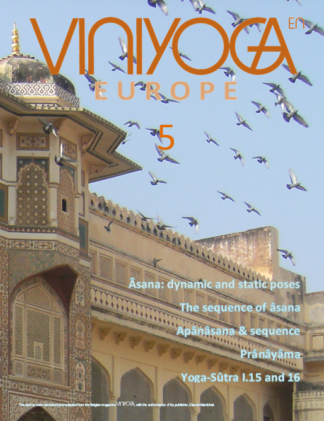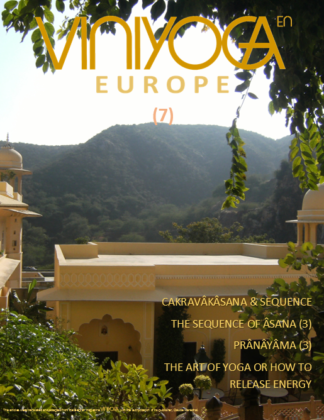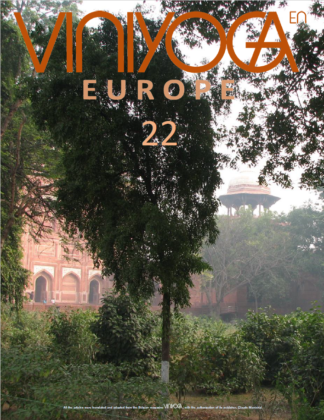Description
(45 pages)
ARDHA-UTTÂNÂSANA
Ardha-uttânâsana is a symmetric standing posture, in which the torso is parallel to the floor and the vertebral column is bent backwards. This pose provides flexibility and strength. It is mainly used to prepare for other postures, but it can also be the main posture of a sequence.
By Claude Maréchal
SEQUENCE: ARDHA-UTTÂNÂSANA
This sequence is adequate for well-trained practitioners. For the others, we present a gradual preparation in several steps.
Following this gradual approach should lead us to a double result: increase the flexibility of the different parts of our body and strengthen our muscles in general, especially those of the back. This procedure will also improve our endurance.
By Claude Maréchal
ASTHMA & YOGA
This article is a result of both personal and professional experience, because the author suffers from asthma and she is also a physiotherapist and a yoga teacher.
By Catherine Pin-Chiabaut
VINIYOGA OR HOW TO HEAL THE MIND
Among the essential components of a human being, one of the most important is one’s tendencies, in terms of life orientation. Accomplishing one’s own duties, looking for pleasure, having possessions and power and achieving inner peace are orientations that may collaborate or collide. Yoga can help to clarify this subject, and ordinate and adjust these elements.
By Claude Maréchal, with the collaboration of Élisabeth Wieczorek
SOME EXPLANATIONS ABOUT YOGA PRACTICE
What is the best time for practicing yoga? Nowadays, this question is asked more often. In the past, the obvious answer would be in the morning; practicing at another time would be a mistake.
By T.K.V. Desikachar
WORKING IN A METHODIC WAY
A seminar with T.K.V. Desikachar in Sévrier (continuation).
By T.K.V. Desikachar
VEDIC TEACHING – third part
The Vedic tradition has many and diverse ceremonies and rituals, to purify oneself, to prepare for something or to ask for protection. And so does Vedic teaching.
By T.K.V. Desikachar
YOGA-SÛTRA (I.40)
This aphorism leads us to a new section of Yoga-Sûtra.
Now that the mind is clear and calm, it can seize anything, from the most visible object to the most hidden, from the most concrete object to the most abstract, from the most evident object to the most subtle, etc.
It has attained a very high degree of perfection, which Patanjali describes in the rest of the first chapter.
Comments by Professor Shri T. Krishnamacharya; presentation and explanations by T.K.V. Desikachar





